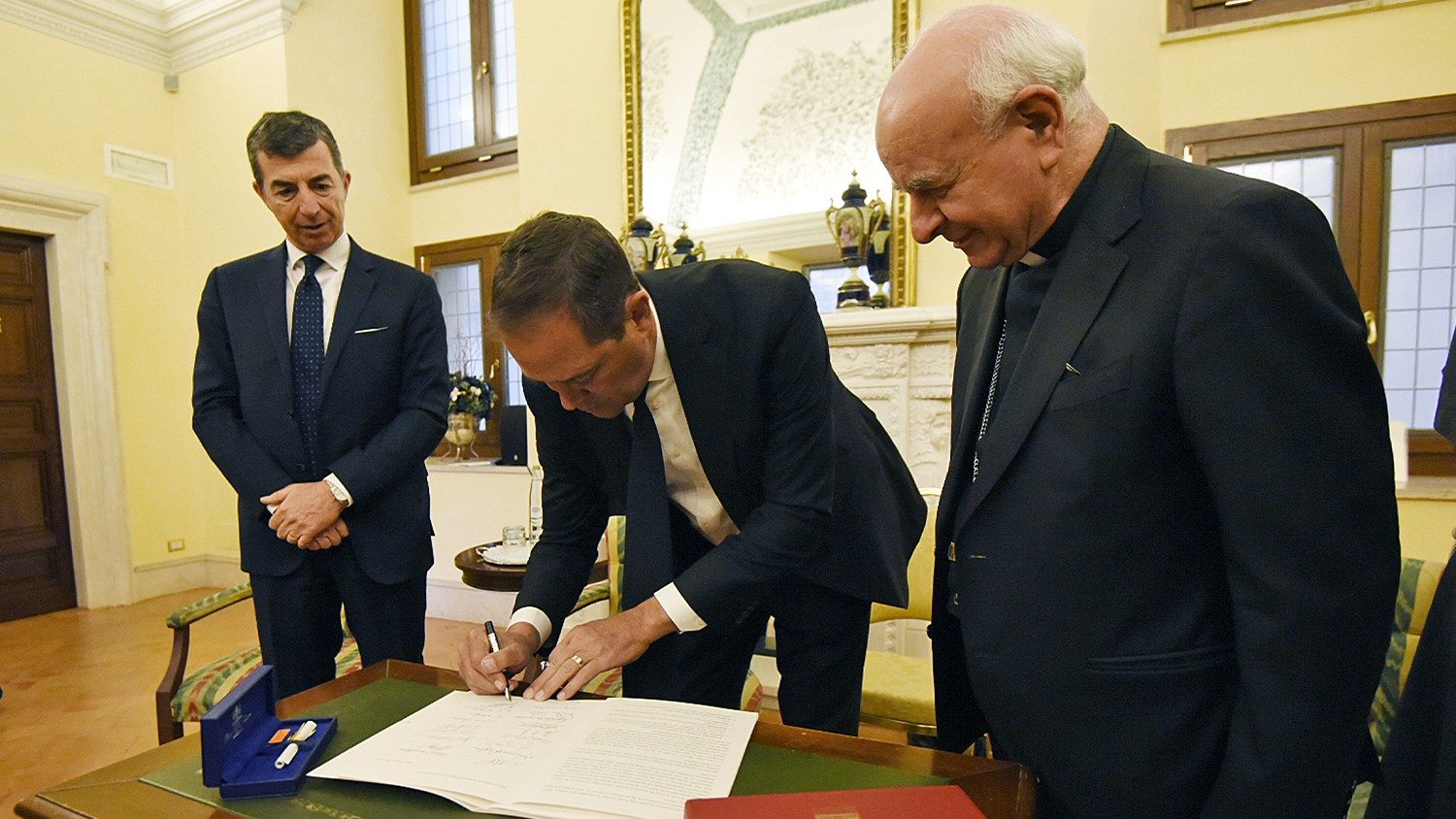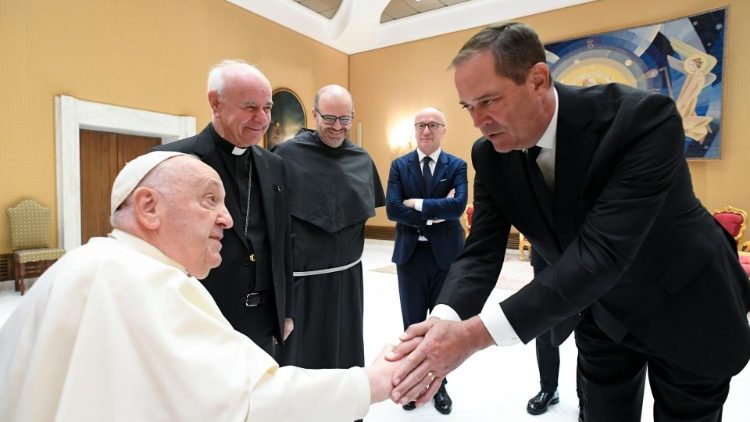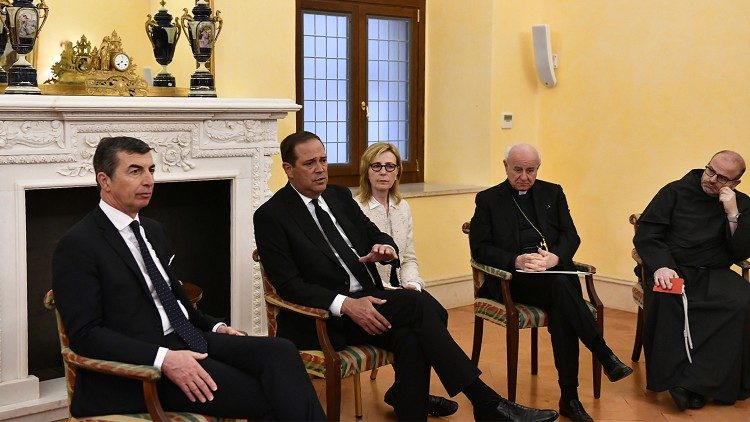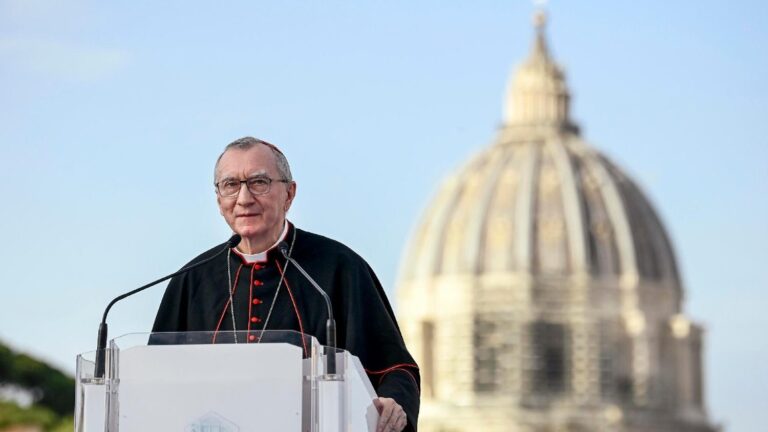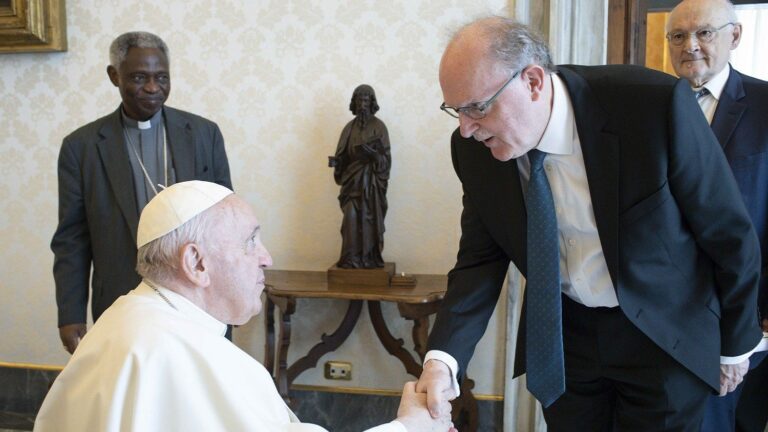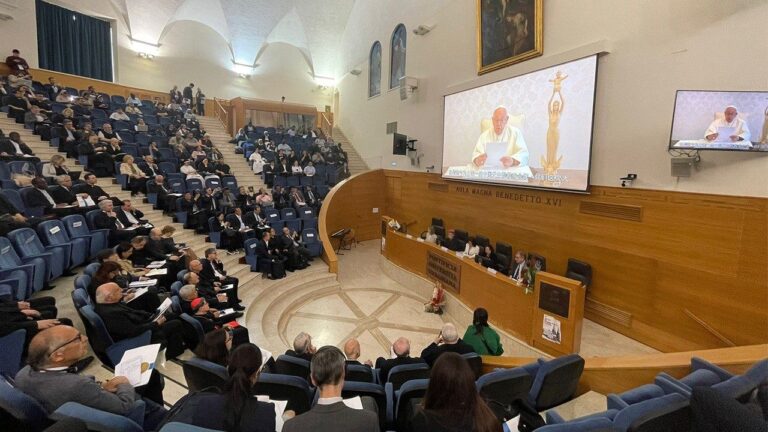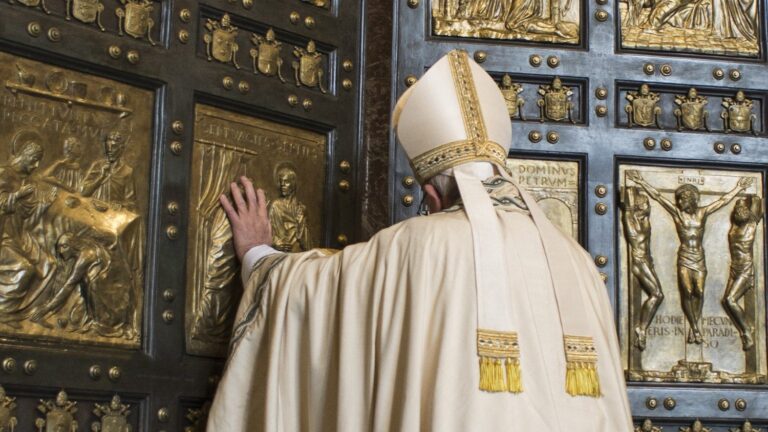Cisco signs the “Rome Call for AI Ethics”
Cisco, the multinational digital communications technology company, signs the Pontifical Academy for Life’s “Rome Call for AI Ethics,” committing to an ethical approach to intelligence artificial in the areas of ethics, education and rights.
By Linda Bordoni
Expressing satisfaction that the multinational digital communications technology company – Cisco – has joined other major companies involved in AI, in pledging to adhere to ethical guidelines, Archbishop Vincenzo Paglia highlighted the fact that artificial intelligence is “no longer a subject reserved for experts” and that the ethics of its development are more urgent than ever.
The president of the Pontifical Academy for Life (PAV) spoke Wednesday morning at an event where the CEO of Cisco System Inc. signed his name The call for AI ethicsa document promoted by the Pontifical Academy and by its RenAIssance Foundation (which supports anthropological and ethical reflection of new technologies on human life) and has already been approved by Microsoft, IBM, FAO and the Italian Ministry of Innovation.
The signing ceremony at the Vatican followed an audience with Cisco CEO and Chairman Chuck Robbins and a delegation, with Pope Francis before the general audience.
Rome's call for ethics
The document aims to promote a sense of shared responsibility between international organizations, governments, institutions and the private sector to create a future in which digital innovation and technological progress – and in particular AI – respect the dignity of the human person so that each individual can benefit from advances in technology.
“We are very pleased that Cisco has joined the Call to Rome because it is a company that plays a crucial role as a technology partner for the adoption and implementation of artificial intelligence (AI), providing expertise in infrastructure, security and protection data and AI systems,” said Archbishop Paglia, adding that “From now on we will see how this can further develop to combine the corporate commitment already present with the ethical principles of the Rome Call . »
The president of the PAV recalled that in 2020, understanding that the time had come, the Academy had brought to the attention of the world “the necessity and urgency of calling for algorithmethics, that is to say say to ethics in the design of the algorithms underlying artificial intelligence”. “.
Today we know that AI is no longer A a subject reserved for experts, and thinking about the ethics of its development is more urgent than ever.
He declared that this new approval of the Rome CalI demonstrate this and note that the document has already been endorsed by international technology players, government and United Nations institutions, universities around the world, businesses and individuals, as well as representatives of the three Abrahamic religions.
New opportunities and new challenges
For his part, Chuck Robbins highlighted how AI is changing our world and “presents vast opportunities but also new challenges”.
He described his company as having built the networks that connect people and organizations around the world, and said that today it is “building the critical infrastructure and security solutions that will power the AI revolution “.
“The principles of Call to Rome are consistent with Cisco’s core belief that technology must be built on a foundation of trust at the highest levels, to ensure an inclusive future for all,” said Robbins.
Transparency, responsibility, human values
Also present at the event was Father Paolo Benanti, extraordinary professor of ethics of technology at the Pontifical Gregorian University and scientific director of the RenAIssance Foundation, who highlighted the need for action in multiple directions.
“Develop large, unbiased, high-quality data sets to train AI models; provide access to cyberinfrastructure; develop AI skills; establish governance frameworks to manage AI development; and provide AI systems that are transparent, accountable and aligned with human values.
Cisco approval for Rome Call for AI ethicshe concluded, and his commitment to “proactive governance and risk mitigation, as well as a broad perspective on the transformative impact of AI in industries and society,” represents a step forward in this process.
